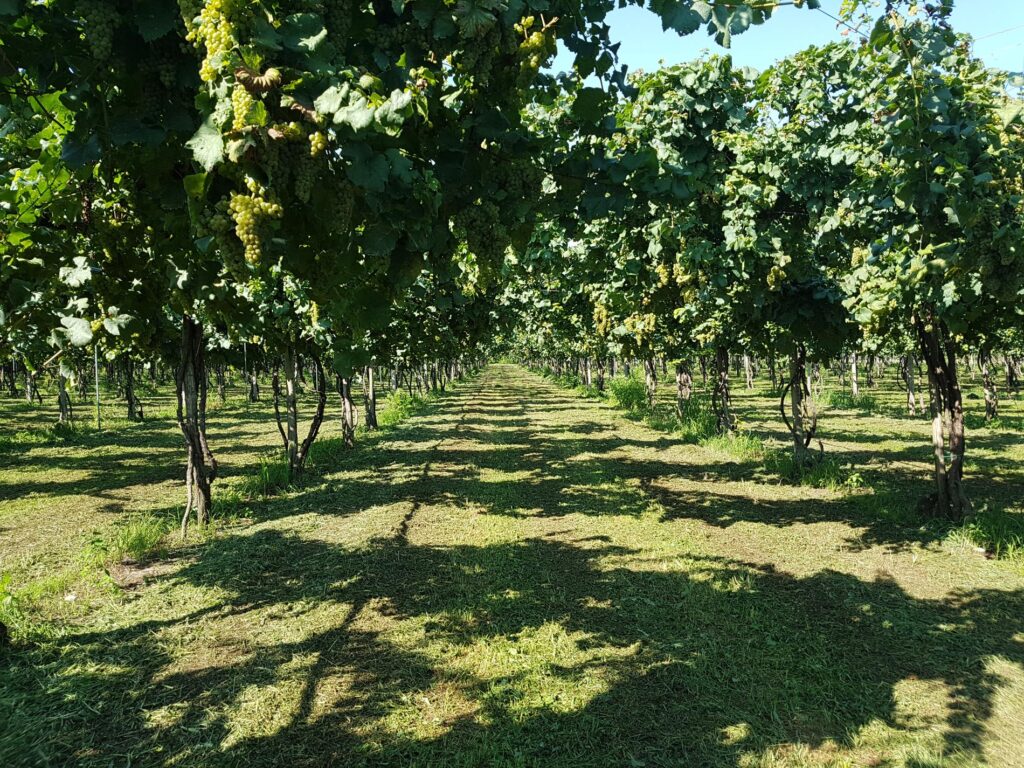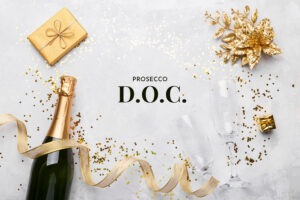Certified grapes
Environmental and social sustainability have always been important issues for those in the wine-making business. Prosecco Doc wine makers are no exception, and they are constantly striving to offer their clients a ‘green’ product produced using S.Q.N.P.I. (National Integrated Production Quality System) certified grapes. The S.Q.N.P.I. system takes into consideration all the agricultural practices available for the cultivation and care of a specific crop (e.g., pest control) and aims to identify the best approach to ensure that the use of synthetic chemicals, such as fertilizers, can be minimized. The S.Q.N.P.I. approach considers all the relevant technical standards and phytosanitary regulations (i.e., the production regulations which in the case of wine-making refers to the Viticulture Protocol) for each specific crop, comprising all agronomic and phytosanitary practices and restrictions and the number of treatments permitted.
The ‘little bee’ logo: a symbol of sustainability
When buying Prosecco DOC di Treviso remember to select from the producers who strive for the best possible compromise between environmental and human health aspects versus economic return. These wine-makers have decided to work in a way that respects the natural rhythms of the earth. If the grapes used for wine making come from vineyards that have obtained SQNPI certification (National Quality System for Integrated Production), it means that they are grown using the agronomic techniques that favour the environment and, by consequence, human health. In order to obtain the certification, an entire crop must be subjected to a control regime otherwise the producer risks being excluded from the scheme.
Choose a Sustainable Prosecco
Considering the exponential increase in the production of Prosecco Doc, the Protection Consortium announced the need for ‘greater commitment to sustainability’ through adherence to certification schemes, such as S.Q.N.P.I, and the achievement of set objectives. Indeed, since 2021 the Consortium has adopted a number of standards founded on key social, environmental and economic elements. The first concerns the ability to guarantee conditions of social well-being; the second regards environmental aspects, understood as the ability to maintain the quality and survival of natural resources; while economic sustainability concerns the ability to generate revenue and employment. The notion that Prosecco production can become 100% sustainable in all these respects is gathering more and more support.








